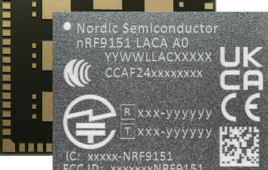 When Apple introduced Passbook at its developers conference in June, it looked like one more step on the way to making the iPhone an electronic wallet. Andy Schmidt,a research director at CEB TowerGroup’s commercial banking and payments practice, called it “a potentially disruptive mobile wallet waiting for payment capabilities.”
When Apple introduced Passbook at its developers conference in June, it looked like one more step on the way to making the iPhone an electronic wallet. Andy Schmidt,a research director at CEB TowerGroup’s commercial banking and payments practice, called it “a potentially disruptive mobile wallet waiting for payment capabilities.”
Passbook will hold loyalty cards, movie and sports tickets, and boarding passes – and display them as barcodes at an entry point or point of sale (POS). enter the venue or interact at point-of-sale. Since it already can hold stored value cards, like gift cards, moving to a full payment capability should not be a huge challenge.
Joseph Dickerson, a user experience architect at Fiserv and ardent blogger, thinks that Apple will launch a payment service on its iPhone 5, but not one using near field communication (NFC). Instead, he predicts, the company will use the low-energy bluetooth protocol.
Many writers who attended the Apple conference noted CEO Tim Cook’s none too subtle reminder that Apple has 400 million user credit cards stored in iTunes. Dickerson notes that Apple already lets users make payments through their phones at Apple stores. Download the Apple store app, scan a barcode and pay for it through your iTunes credit card.
Merchants who want to support iPhone payments can buy an iPad and make it into an instant POS device, adds Dickerson.
Dickerson contrasts Apple’s very careful approach to Google which does a big launch before the bugs are worked out, as in Google wallet, which has faced a series of problems.
Casey Newton suggests that even if credit cards never make it into Passbook, the app could still give Apple plenty of valuable data: where consumers shop, how often they frequent a given establishment, and what kind of offers move them to make purchases. With that data comes a range of new business opportunities for the company.
Meanwhile, Owen Thomas at Business Insider says that Apple is in talks to buy a Pinterest rival, The Fancy, providing an entry point for e-commerce growth.
Paul Galant, CEO of global enterprise payments at Citi, said mobile payments will be more disruptive than the Internet was.
“It is going to be massively disruptive. This is going to make the Internet for banks look like child’s play. I was running the Internet for the bank and I botched it. I didn’t understand how it would change the business. Mobile will be much more fundamental because it will work both online and at the physical point of sale.”
August 13, 2012




